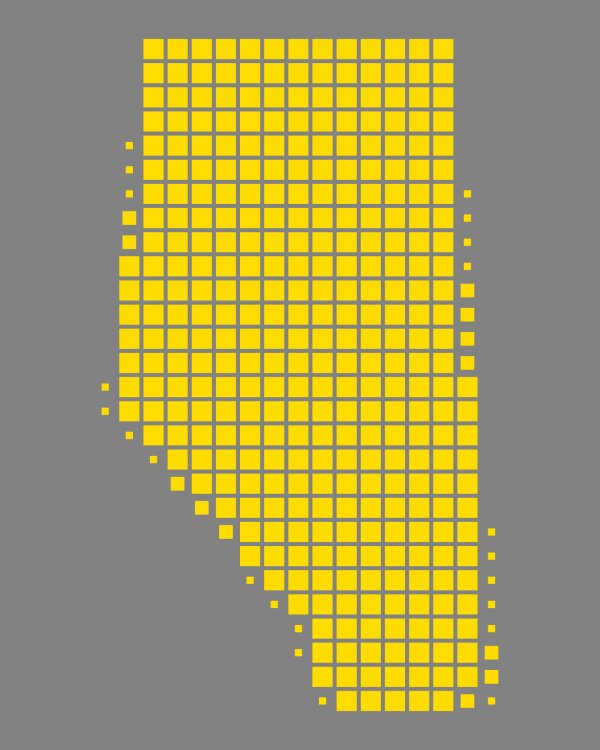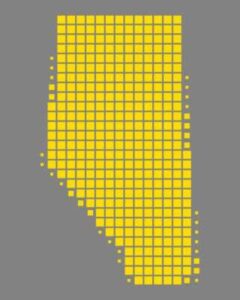Under the dower act, neither spouse may sell or mortgage their home without the other spouse’s consent.
Today, the dower act applies to both spouses equally, meaning a widower is also entitled to his deceased wife’s property.
Note: The dower act only applies to married persons, and Quebec and Newfoundland have succession and matrimonial property statutes that provide the same protections as the dower act. If you have recently suffered a loss or are legally married and intending to sell real property, below is everything you need to know about Alberta’s dower act.
Are you selling a home? This is what you need to know about your dower rights in Alberta.
- Under Alberta’s dower act, neither spouse can sell the marital home without consent from the other.
- Dower rights only apply to legally married couples.
- Dower rights do not apply to co-owned properties.
- The property owner may petition Alberta’s court of queen’s bench to eliminate the need for a spouse’s consent when selling the property if the spouse’s refusal to consent is unjust.
- If you sell the marital home without your partner’s consent, they are entitled to half the home’s value.
- You may sell your home if your spouse signs a dower consent form or after divorce.
- Alberta’s dower act protects the rights of a spouse not listed on the property’s title.
- The dower act only applies to marital homes.
- The dower act does not apply to rental property and other properties owned by the spouse.
- You qualify for dower rights in Alberta if:
- (1) The homestead’s title only contains your deceased spouse’s name.
- (2) You are legally married to the property owner.
- (3) You have lived on the property since the time of marriage. This is often overlooked or interpreted as both spouses having lived in the property for the full duration of the marriage but can also be viewed as either spouse having spent a single night at the property.
References
What is Alberta’s dower act?

Alberta’s Dower Act protects the spouse of a property holder and prevents the disposition of land without their consent. A disposition of land can be considered any sale or mortgage of a property. This means that a person’s real estate property cannot be sold, leased, or disposed of without consent from the spouse if the conditions for the dower act are met.
Today, the Dower Act works both ways, and both spouses have similar protections. Historically, that protection only applied to widows.
What are dower requirements in Alberta?
- The dower act only applies to married couples in Alberta.
- Same-sex partners may enjoy dower rights if legally married.
- Couples legally married outside Canada may qualify for dower rights.
- Dower rights apply to separated couples. If you are divorced, then you do not qualify for dower rights.
- If you are below 18 and are legally married, you qualify for dower rights.
As mentioned, the dower act only applies to legally married couples. This means the protections under it do not apply to persons in a civil union or cohabiting parents.
How do you become legally married in Canada?

Canada’s Civil Marriage Act defines marriage as “the lawful union of two persons to the exclusion of all others.” Under the act, for a marriage to be lawful, the persons involved must
- (1) be at least 16 years of age. If you are below 18, you can only get married with parental consent or through a court order.
- (2) if you were in a previous marriage, you must dissolve the previous marriage via a divorce, death, or court order.
What if you are a non-resident of Canada?
Section 5(1) of Canada’s civil marriage act reads quote:
“A marriage that is performed in Canada and that would be valid in Canada if the spouses were domiciled in Canada is valid for the purposes of Canadian law even though either or both of the spouses do not, at the time of the marriage, have the capacity to enter into it under the law of their respective state of domicile.”
If your marriage fits the description above, you qualify for the following rights if your spouse passes.
Spousal rights under Alberta’s dower act
- The surviving spouse has a right to the home where the couple lived during the marriage, even if your name is not on the property title.
- In urban settings, a homestead covered under the dowers act cannot consist of more than four adjoining lots in a single block.
- In rural areas, your rights extend up to a quarter section.
- The surviving spouse -not listed on the property title upon the property owner’s death- gains “life estate rights.” That means you can live on your deceased spouse’s property until your demise.
- If the surviving spouse moves out of the home/property, dower rights expire.
- A dower spouse does not have the right to give away the property as a gift or sell.
- If you were legally married, your spouse cannot sell or lease the property for more than three years without your consent
- A will becomes invalid if the property owner leaves the property to someone else without written consent from the surviving spouse.
How does the dower act work in Alberta?
In Alberta, if your spouse dies without leaving a will or if your name is not included on the property title, you qualify for dower rights. Dower rights also apply if the survivor lived on the property during the marriage.
Alberta’s dower act section 2(1) reads, quote:
“No married person shall by act inter vivos make a disposition of the homestead of the married person whereby any interest of the married person will vest or may vest in any other person at any time
(a) during the life of the married person, or (b) during the life of the spouse of the married person living at the date of the disposition, unless the spouse consents to the disposition in writing, or unless the court has made an order dispensing with the consent of the spouse as provided for in section 10.”
What if your spouse decides to sell the property?
If you qualify for dower rights, your spouse needs your written consent before listing, leasing, mortgaging, selling, or transferring the property to another person. That means that when selling your marital property, you must complete a “Purchase Contract Dower Consent and Acknowledgment Form,”
How do I release dower rights in Alberta?
Under Alberta law, there are three ways to waive dower rights.
(1) You may sign a dower release.
(2) Get a divorce, not a separation.
(3) Sign a dower consent form.
What is dower release in Alberta?
If you are not the registered owner on the property title, you may sign a dower release. The effect is giving up your dower rights. Once you give up your dower rights, your spouse may list another beneficiary in their will, and the person does not need consent to sell or transfer the property.
To make a dower release valid, you will need the services of an attorney, and the agreement must be in writing. In addition, the person signing the agreement must not do so while under duress or pressure.
Sign a dower consent
As mentioned, property owners in Alberta cannot sell their homestead without getting consent from their spouses. A dower consent is a legal document that allows a spouse to give up their dower rights for a single transaction.
Consequently, if you intend to list your marital home, your spouse must sign a dower consent form at the province’s Land Titles Office. You may also have to sign a dower consent form when refinancing a mortgage.
Get a divorce
if the couple divorces, the person not listed on the property’s title losses their dower rights. What is vital to remember is that a separation does not terminate dower rights in Alberta.
Does dower apply to common law marriage in Alberta?
No. In Alberta, dower only applies to married couples, as explained above.
What happens if you swear a false dower affidavit in Alberta?
Selling your property without informing your spouse or swearing a false dower affidavit in Alberta may result in the court awarding the non-titled spouse half the home’s value. That means that if you sell the house, your partner gets at least half of the gains.
What are my rights if I’m unmarried or if my name is not on a deed in Alberta?
When distributing property at the end of a marriage or after the demise of the listed person, below is what will happen.
- Is there a pre-nuptial, separation, or cohabitation agreement? If yes, the court will divide the property according to the agreement.
- If there is no pre-existing agreement, the court will determine if the couple was legally married.
- Suppose the couple was legally married. The surviving spouse qualifies for dower rights, meaning the survivor may reside in the home until death.
- The court may also divide the property under Alberta’s Family Property Act.
- The court may divide the property equally for joint property if divorce occurs.
Can you sue your partner if you do not have dower rights in Alberta?
Under Alberta’s Adult Interdependent Relationship Act, your partner becomes interdependent if:
(1) if you live together for at least three years.
(2) there is a child in the relationship (adoption/birth).
If you were in an interdependent relationship with another, you may file an “Unjust Enrichment Claim.” This type of claim asks the court to divide the property on the grounds that it would be unfair to let the person in the title keep the property. The process is long and complicated, so we recommend consulting with an attorney.
Generally, what you need to remember is:
- The non-owner must prove that they suffered a loss.
- The property owner gained something from the relationship.
- There is no legal reason for the gain or loss.
Sweetly has some programs that may help ease a transaction involving Dower Rights.
Sweetly’s Models
Sweet Sale
With the Sweet Sale, you get a Fair Price Cash Offer. It’s a fair offer that lets you sell without showings and choose your own moving day.
Start your sale with a Free, Fair Price Cash Offer, which remains open to you for 60 days. Activate our offer any time – even without listing/showing your home, or at some later date if your home isn’t selling. Compare our hassle-free, all-Cash offer to a traditional MLS® listing. Make an informed decision. Choose what’s best for you. Offers remain open to our customers for 60 days. Our offer is withdrawn if you list with an outside REALTOR®.
Listing With Confidence
A traditional listing allows you to test the market with your price. A listing with Sweetly comes with it’s own set of perks.
- Test the market with confidence, knowing you’ll have a Sweet Sale available if your home doesn’t sell.
Start with an fair price cash offer to know the current value of your home. Then, decide ‘how’ you want to sell, BUT before you do, you can shop at your pace to find the right house. Beat out any competing buyer because you won’t need a ‘condition of sale’ so your offers are stronger without spending extra money. Once you have a firm purchase you can sell your house to Sweetly on a day that works best for you.












